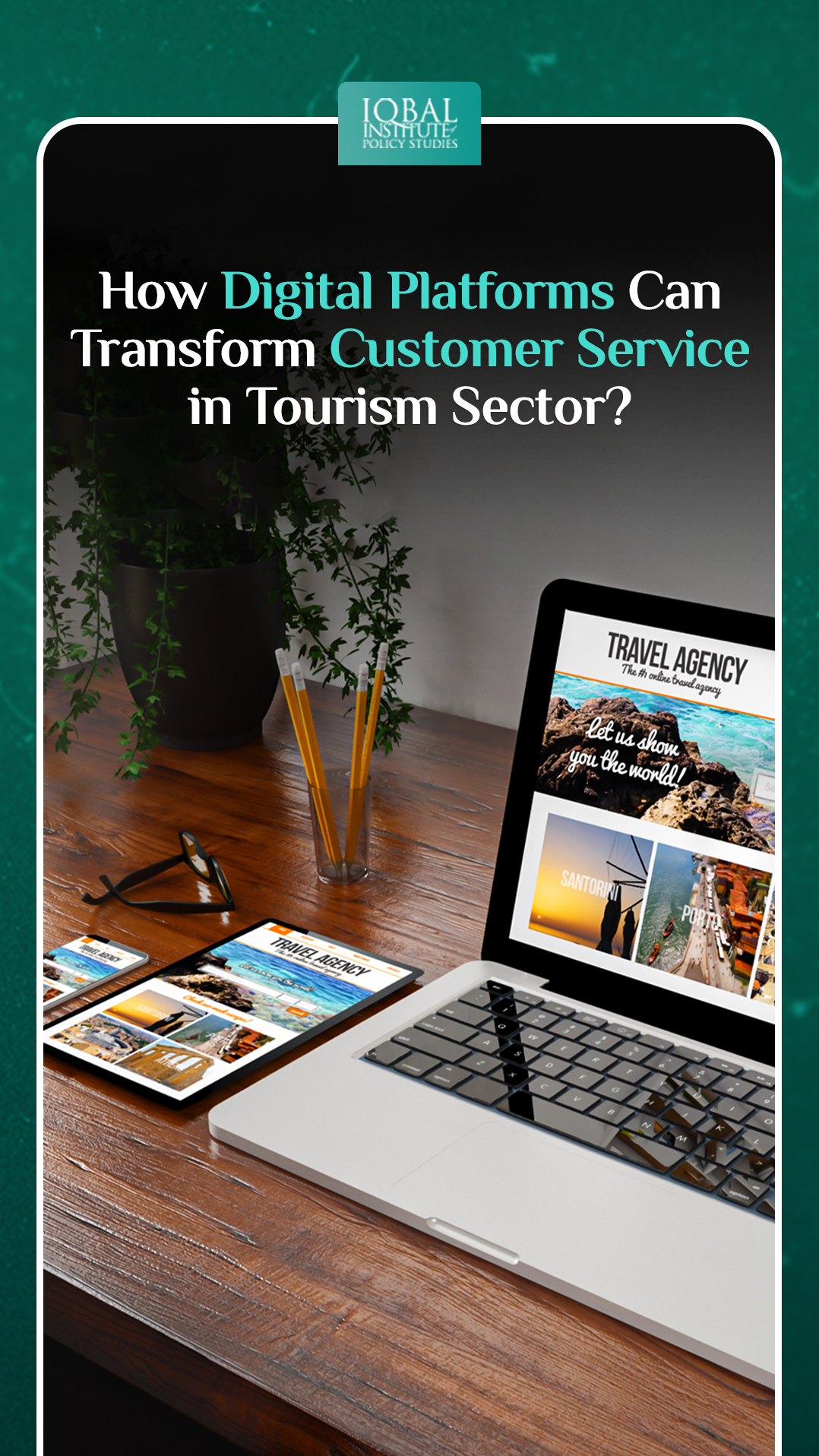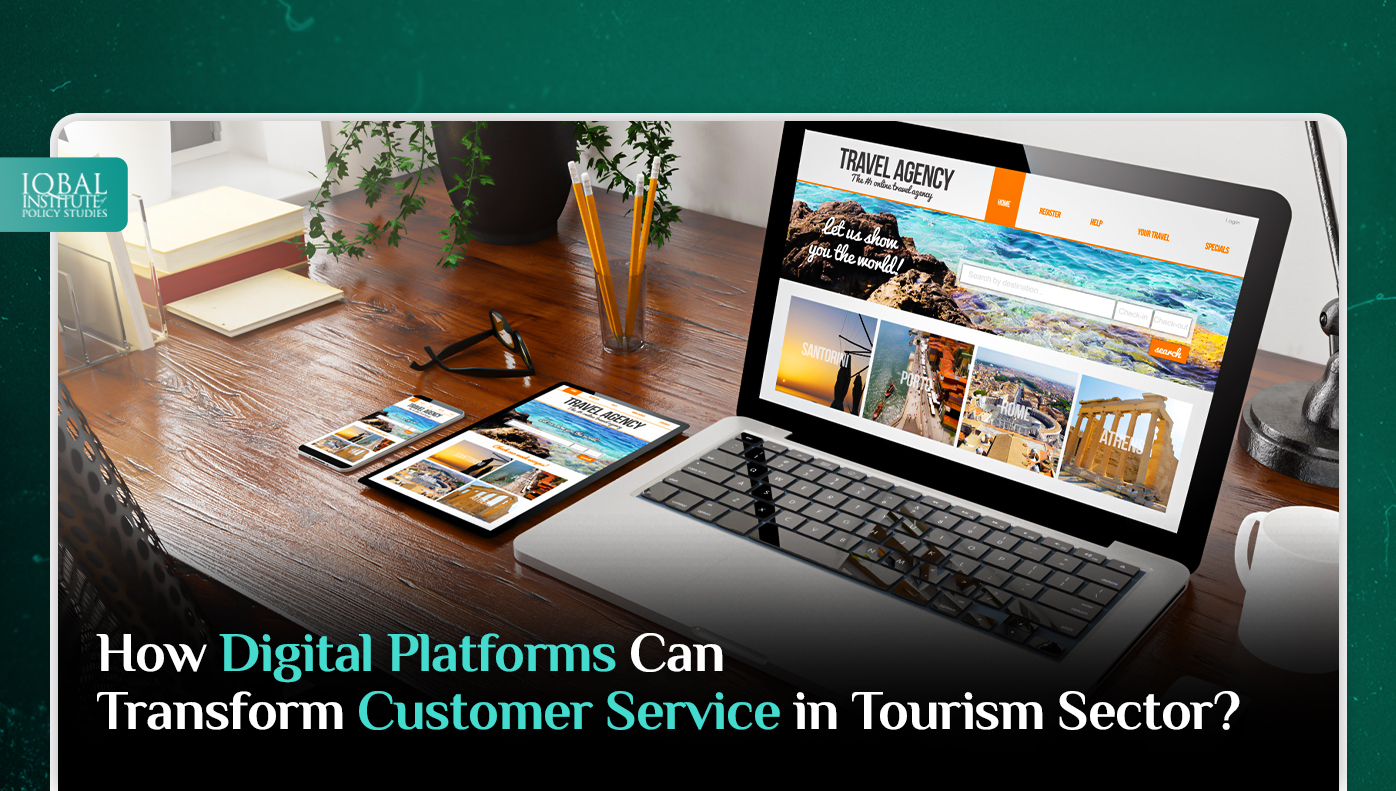The tourism industry is considered a central driving force for sustainable socio-economic development. Tourism is important for enhancing economic activities in the country. However, business development and innovation can be considered important drivers for boosting the tourism and hospitality industry through technology. With the inception of the World Wide Web, digital transformation has become perpetual.
Due to the lack of a digital platform for customer services People prefer to use conventional methods of booking and attaining information which is unusually slow, time-consuming and increases uncertainty. To get the best return from the tourism industry it is a dire need to incorporate digital transformation. It will increase economic benefits as per the Microsoft Corporation Research, the digital transformation in services will increase GDP by 6% in Asian Pacific Countries.
Role of Technology in Tourism
The evolution of Information Technology (IT) in the tourism industry provides an ‘info structure’ for the whole industry. The info structure defines as the technical infrastructure supporting an information system. The e-tourism is focused on consumer-centric technologies, and it will help organisations to connect with customers dynamically with technologies:
Previously, reservations were carried out via telephone. This mechanism had too many errors, but now, with the introduction of online platforms, customers can make reservations with a few clicks through websites and mobile apps.
The information was disseminated through brochures, and now accessibility of websites, forums, and social media has made a tourist’s life easy. Information and Communication Technologies (ICT) allow customers to view and compare. Artificial intelligence also helps improve the infrastructure of information sharing, and it also has versatile features, i.e., room mapping, dynamic pricing, and analytics.
Technology such as mobile apps and websites is improving the experience of tourists. First, it allows customers to repeat the deal they find attractive with the same agents. Secondly, AR and VR technologies help in experiencing a virtual object in the real world. The use of AR/VR technology in tourism can replace paper-based marketing and advertising materials and augmented visitor experiences in the destination and travel assistants that guide users through complex public transport systems in real time.
The inclusion of technology in the tourism sector would increase revenue by up to 135%, reduce guest complaints to 71%, and increase customer service ratings by 19%.
The Situation of Tourism in Pakistan
The Conde Nast Traveller, a London-based travel magazine proclaimed Pakistan as the top travel destination in the world for the year 2020. The following year, the British Backpackers Society announced Pakistan as the world’s third-highest potential adventure destination. The tourism and travel industry contributes 5.9% of the economy’s GDP and 4.7% to GDP growth. This industry created 6.2% of total employment opportunities in the total labour force. However, foreign tourists are investing around 2 billion in Pakistan’s economy every year. The tourism and travel industry has created 1 in 4 new jobs.
Online Tourism Platforms in Pakistan
Different types of online tourism platforms that are operating in Pakistan (Top ten)
 Analysis
Analysis
The above-written table depicts the feature that the top ten online tourist platforms are offering. No single online platform that covers all major services (i.e., air tickets, transportation, accommodation and AR/VR) due to which tourists have to switch between different platforms. Globally, around 80% of tourists are preferring to use mobile apps to plan their holiday trips. Using mobile apps will make booking procedures easy, facilitate cashless travel, reduce paperwork etc.
Challenges that Hinder the Adoption of Technology in the Tourism Sector
Pakistan is facing multiple challenges in technology adaptation in the tourism sector. Some of these are discussed below:
Lack of Internet Availability
Tourism growth is explicitly dependent upon the infrastructure of the country. The meritorious IT infrastructure would increase the worth of this sector. But in Pakistan, internet penetration is only 35%, and merely 76 million people are using 3G+ connections. Pakistan is standing at 90th place (at the lowest quantile) on the Inclusive Internet Index, which determines the affordability, availability, and people’s readiness to use the internet. The situation of internet infrastructure is worse in Northern areas. The only internet service available in Gilgit Baltistan is Special Communication Organisation (SCO), and its 16 MPs speed is equivalent to 4MPs available in Islamabad; nonetheless, it provides the most expensive package as residents of Gilgit Baltistan have to pay 20 times more as compared to the internet package available in Islamabad. This situation restricts technology innovation in the tourism sector.
Inefficient Online Tourist Platforms
Technology has evolved the landscape of tourism. It reduces the transaction cost of tourists and allows them to locate reasonable accommodations and transportation according to their budget. It was reported that tourism and travel-based apps are considered the seventh most downloaded app. In Pakistan, though mobile tourist apps exist, there is not a single app that provides end-to-end solutions. It was reported that in 2018, 4.45 million foreigners visited Naran, Kalam, and Kumrat, and it may increase with time. One of the major hurdles foreign tourists face is a lack of awareness about the tourist site. Even though the government has designed an app, it has many issues, such as not locating all the sites accurately, places not embedded with maps, etc.
Less Involvement of Government
Government involvement would play a significant role in developing ICT in the tourism sector. Pakistan Tourism Development Corporation (PTDC) is responsible for promoting tourism in Pakistan. In 2019, it was restructured and National Tourism Coordination Board has formed. All activities related to the tourism promotion were handed over to respective provinces as per their budget. PTDC is playing a passive role in the enhancement of technology. In 2021, PTDC collaborated with bookme. pk to develop an e-portal. Government can take the lead to promote e-tourism for better and more efficient output.
Skills Development
Skilled workers are essential to increase work productivity. Pakistan did not have more availability of skilled IT workers in the tourism and hospitality sector due to a lack of interest from youngsters and awareness in this area.
Conversely, this industry has the potential to provide employment to unskilled and semi-skilled workers. Because highly qualified people can opt for the profession of travel guide, but lack or limited coverage of customer services training programs in the tourism industry is decreasing the expectation of tourists.
Recommendation
Technology Infrastructure
Since all ICT is grounded on the internet, so there is a dire need to upgrade it to 4G/5G technology and install fibre optics in northern areas for high-speed internet. Secondly, the government must provide incentive packages (loans at cheaper rates, support packages, etc.) to the private sector to adopt the technology.
Skill Development Programs
There is a need to bridge the skill gap by introducing skill development and capacity-building programs, specifically for micro, small and medium enterprises in the tourism value chain. It is imperative to train stakeholders on how to employ and adapt technologies.
Public-Private Partnership
It is necessary to build a national ICT Task Force to promote tourism in a country. The task force must consist of higher officials of government and private sector stakeholders. They are responsible for jotting down the technology-related initiatives required to support tourism and compiling a detailed implementation plan.
Unification
All the stakeholders in the government or private sector can share information about innovative technology to develop a unification (single and coordinated) approach and agreement in adopting new technology. It will help in improving the efficiency of online tourist platforms. For instance, the Indian government has created a Unified Tourism Interface (UTI) that helps in exchanging data among stakeholders.
Digital Policy
The digital Pakistan Policy aims to provide affordable ICT services to every citizen to improve the quality of their life, but the policy did not include e-tourism. This sector has the potential to boost the economic growth of a country. Government must include a digital policy for the tourism sector, i.e., a one-stop app, etc.
Research and Development
Investing in digital research and development would promote sustainable long-term and growth. This would also help in enhance the linkage between academia and the tourism industry.
References
http://eprints.bournemouth.ac.uk/5126/1/TMA_eTourism_20years_Buhalis&Law_FINAL_.pdf
https://www.hotelmize.com/blog/understanding-the-important-role-of-technology-in-tourism-marketing/
https://macropakistani.com/tourism-in-pakistani-fma/
https://tracxn.com/explore/Online-Travel-Startups-in-Pakistan
https://247news.com.pk/ptdc-partners-with-bookme-pk-for-its-tourism-e-portal/
https://www.medianama.com/2022/03/223-summary-national-digital-tourism-mission-report



Leave a Reply